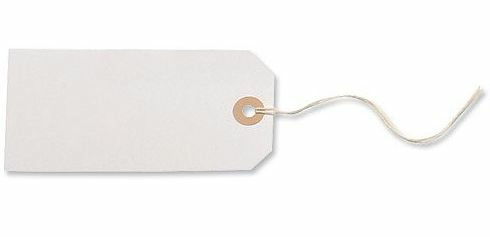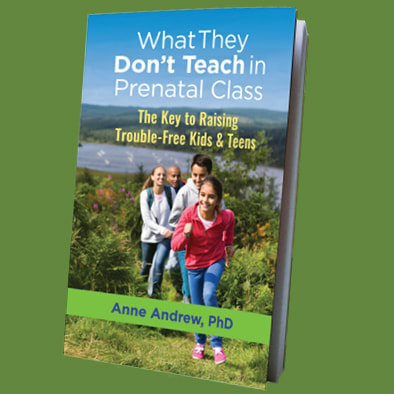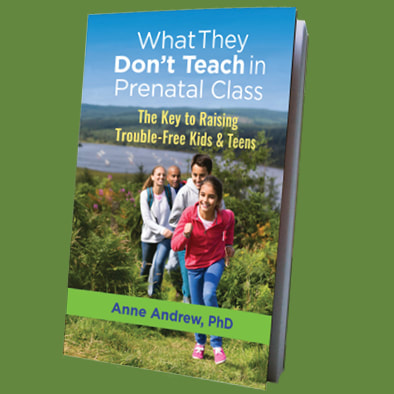|
Are We Using Too Much Praise? by Anne Andrew (excerpted from What They Don’t Teach in Prenatal Class: The Key to Raising Trouble-Free Kids and Teens). Do you do what you do to win approval from our bosses, peers, spouse, other family members, and even your children? When that approval is not forthcoming do you beat yourself up wondering what you did wrong or reminding yourself that once again you failed? How can we raise our children so that they are not praise-dependent?  We need to teach children to find approval within themselves. They’ll be constantly looking outside themselves for approval, as long as they are trying to establish their own worth instead of being sure that they have all the worth they will ever need. So, be careful with praise. Having a strong sense of Inherent Worth is crucial in countering the tendency we have of looking for and finding evidence that our underlying negative beliefs are true. How will I encourage my child if I don’t use praise? If your child brings a painting home from school, you might ask her about the painting—did she enjoy painting it? How did she decide which colors to use? How did it make her feel? Is she pleased with the result? What will she paint next time? These questions will help her to understand her own response to painting. Is this an activity that she enjoys? What are the aspects that are enjoyable? You’ll learn a lot more about her and help her learn about herself as well. Helping her tune into her feelings about the painting will allow her to process her emotional responses to the painting. Perhaps she was frustrated that she couldn’t get the proportions right or that she couldn’t mix exactly the color she wanted. Feelings of frustration point to an underlying negative belief and this can be countered by reminding her that her Worth is Inherent—it doesn’t depend on how well she paints. Perhaps she feels fantastic and the picture is exactly how she wanted it to turn out. Then she will be encouraged to continue exploring her creativity through art. It is important that children do the things they want to do because they want to do them—not because we want to live vicariously through our children and reap the rewards of having a child prodigy. Barbara Coloroso, in her book Kids are Worth It!, cautions parents to be neutral when children bring home report cards: “If you get excited about your child’s performance, connecting his performance with his dignity and worth as a person, you are encouraging him to view mistakes as a negative reflection of himself; something to be denied or blamed on someone else.” Whether it is an A or a D, simply be curious. That way you’ll help the child to understand his strengths and weaknesses without judging him. If we get excited when a child brings home a high grade, then we are giving the message that high grades make us happy and he may equate getting good grades with being loved. If we are neutral and accepting, he will feel comfortable sharing his mistakes as well as successes and will know that we are there to help and offer suggestions if he needs them. Begin to notice all the times that you are tempted to use praise, and instead be curious. Don’t stop cold turkey or your children might be confused, but do see how often in a day you use praise automatically. By changing the emphasis from yourreaction to a child’s work to their own reaction to it, you’ll be helping them figure out what they love to do, what are their strengths and their weaker points. You’ll be helping them understand themselves better and they will be freed from the role of making you happy. Action Plan: How many times did you say “Good job!” today? Tomorrow, catch yourself being tempted to say it and ask a question instead. If the old “Good job!” slips out (as it will) just follow it up with a question. That’s it! Was this post helpful? What would you like to hear more about? Book Signing and Talk by the Author on Thursday April 11th, 2019 at 2:00 pm at the Waldman Library at the JCCGV (950 West 41st Avenue, Vancouver, BC). Please call (604) 257 5181 to RSVP.
2 Comments
“Your thoughts and the words you use about a child will at some stage become the thoughts and words that the child thinks about himself”
–Chen Miller Labels act a lot like negative beliefs. Children become their labels. The bad kid in a family will be the bad kid in the family, the klutz will be the klutz until freed of those labels. Children who are labeled as learning disabled may cease trying and feel that they have no hope because they have been given an excuse for low expectations. Is there a way to reduce the impact of labels? Why I wrote What They Don’t Teach in Prenatal Class: The Key to Raising Trouble-Free Kids and Teens1/25/2019 Note: My book is officially launching on February 13th, 2019 and there will be some bonus giveaways that day including free access to my online course (launching in May), worth $150.
My experience as a deeply troubled parent of a once troubled teenager (now a happily functioning adult), and my wish to help other parents avoid the sleepless nights, debilitating fear, helplessness, and despair, led me to write this book. Our family’s ordeal lasted more than six years, and during that time we learned strategies that not only helped us survive but actually allowed us to thrive. As we learned to cope with our family situation in the best way possible, we turned our lives around and emerged stronger, a closer family unit, with greater clarity, increased happiness, and a sense of joy that had not been present. Wow, I’m rapidly approaching the finish line with my book. In fact, the proof copy will have arrived by the time you read this! There are still a few glitches that will need straightening out, but we’re nearly there. My team has been amazing getting the editing, cover, interior layout and e-book conversion done so quickly. What a long process this has been!
By Anne Andrew (excerpted from her upcoming book What They Don’t Teach in Prenatal Class: The Key to Raising Trouble-Free Kids and Teens.)
One of the biggest causes of upsets for parents currently seems to be the battle over screen time. Studies show that too much screen time is not good for children, and screens need to be off for an hour or two before bedtime or sleep can suffer. Social media is adding stress to teens because of the need to be camera ready at all times and the huge potential for abuse. Policing screen time is an unwelcome but necessary chore for parents these days. Following my blog How to Raise Bully-Proof Children, one parent, who is familiar with the techniques I use, told of a bullying incident and how she handled it. It’s a wonderful example so I asked if I could share her story. I’ve changed the names to protect identities.
What if we really could raise children to be bully-proof – neither bullies nor victims? It must be worth a try.
What if we’ve got the bully / victim story completely wrong? This blog presents a radically different solution. In this blog, I’ll explain the root causes of bullying and why punishing the bully and commiserating with the victims actually makes matters worse. I’ll show what both bullies and victims gain from their experience, and suggests five strategies for parents and teachers that will help raise children who are less likely to be bullies and unlikely to be picked on as victims. “Mommy, I’m Bored!” Now that it is mid-summer and the children are not in school, there’s a good chance you’ll have heard the words: “I’m bored!”. There’s a likelihood that it’ll trigger you in some way and cause an irritation or worse. Perhaps you’ll feel guilty “Oh no, I’m not a good parent –otherwise my child wouldn’t be bored –I haven’t provided enough activities or encouraged sufficient independence for them to find something to do on their own!”
Job #1 then, is to process your own upset over the statement. Remember it’s about In the previous posts, I have established that we all grow up with barriers to love that can be removed when we tackle our negative beliefs. In this week’s post, I’ll explain give some strategies for helping your children to own their Inherent Worth so that they can receive the love that you offer.
A child who has a strong belief that he is not good enough, bad, unworthy or any other belief, will find it impossible to let love in. That child will think, consciously or unconsciously “If only you knew how bad, unworthy, unlovable (fill in the blanks) I am, you would not choose to love me. You have to say you love me because you are my parent, but I can’t believe it.” This is the subconscious thinking of any child who has a strong negative belief about themselves. We may not be able to tell what that belief is, so the antidote to all negative beliefs is to own our Inherent Worth. We cannot be Inherently Worthy and unlovable or worthless at the same time. Therefore, it is imperative that parents spend some time helping their children to tune into their Inherent Worth. Unconditional Love: A Parent’s Guide Part Five: Love Yourself to be Able to Love Your Children6/5/2018 "I don't trust people who don't love themselves and tell me, 'I love you.' ... There is an African saying which is: Be careful when a naked person offers you a shirt."
~ Maya Angelou You can’t give something you don’t have! In order for any parent to be able to extend love unconditionally that parent must first love themselves. It is not possible for someone to love another fully without loving themselves. You can only really love your children if you love yourself. At one of my recent talks on Unconditional Love, a mother told me that her young daughter had asked her “Mommy, who do you love the most – me or you?”. That mother had a difficult time answering her. She said “I love you to the moon and back, but if I didn’t love myself I wouldn’t be able to love you, so I love me just as much!”. That’s such a beautiful, but uncommon sentiment. |
Author I know firsthand the emotional and financial costs of having a troubled teenager and I don’t want that to happen to you. That's why I wrote my book What They Don't Teach in Prenatal Class: The Key to Raising Trouble-Free Kids and Teens (available on Amazon). Archives
April 2022
Categories
All
|
get in touch
Email: [email protected] Tel: (1) 604 720 2776
Sign Up to my newsletter
Get information and articles about how to raise happy, mentally-healthy, and addiction-free kids!










 RSS Feed
RSS Feed